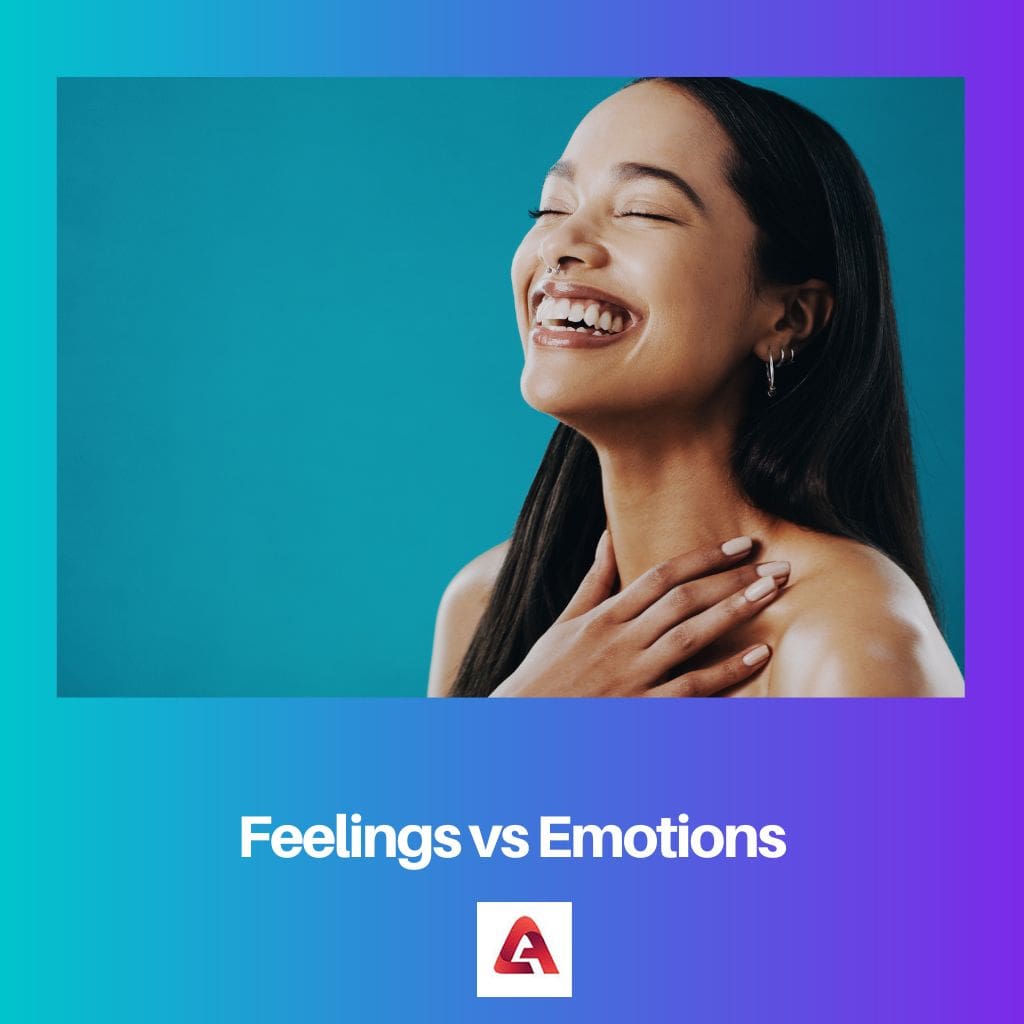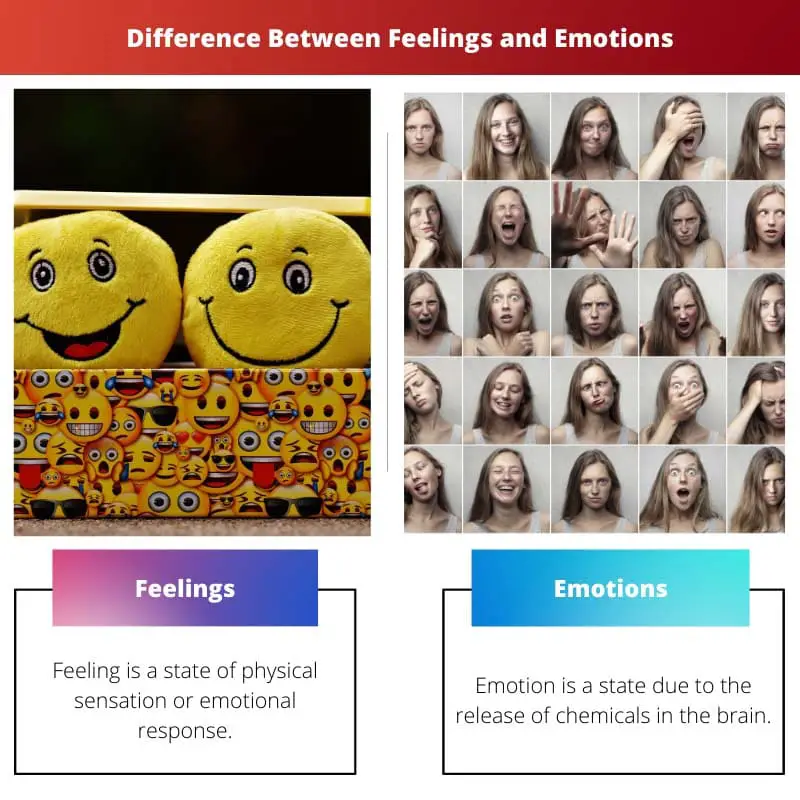Every person can experience feelings and emotions. This is what makes us living beings.
Whatever happens in life, we react to it, which directly impacts our decisions in life. One thing to notice is that these feelings and emotions also make our life colourful.
Without them, we would be like robots, and life would be so dull. Anger, sadness, joy, excitement, hope and fear all add spice to our lives and influence our behaviour.
The words emotion and feeling are sometimes used in the same context and are used interchangeably. It is common to get confused between these terms, but they are a bit different.
Key Takeaways
- Emotions are complex, short-lived psychological states that arise in response to a specific stimulus, involving physiological changes, cognitive appraisal, and behavioral tendencies.
- Feelings are subjective experiences that arise from the conscious awareness and interpretation of emotions, described as the mental aspect or perception of emotions.
- While feelings and emotions are integral to human experience, emotions represent the initial physiological and cognitive response, while feelings represent the conscious perception and interpretation of those emotions.
Feelings vs Emotions
The difference between feelings and emotions is that emotion is the chemical released in the brain in response to some trigger while feeling is something in response to the absorbed emotion.

When a human being is subjected to physical and neurological changes, certain chemicals are released in the brain, which compels humans to go into a state called emotion. When those chemicals are processed in the body, we experience a state of feeling.
It could be a physical sensation or an experience in regard to that emotion.
Comparison Table
| Parameter of Comparison | Feelings | Emotions |
|---|---|---|
| Definition | The feeling is a state of physical sensation or emotional response. | Emotion is a state due to the release of chemicals in the brain. |
| Consciousness | A feeling may be conscious. | An emotion may be conscious or subconscious. |
| Active Brain Part | Feelings originate in the frontal lobe of the brain. | Emotions originate in the limbic system of the brain. |
| Time | Feelings can last for a more extended period. | Emotions last for a few seconds. |
| Dealing | Feelings need to listen to. | Emotions need to be disconnected. |
| Examples | Happiness, pain, hunger, and love. | Joy, fear, anger, sadness, surprise. |
What are Feelings?
Feelings are generated as a result of some emotional response. When we try to interpret our emotions, it gives rise to feelings.
Feelings arise from the frontal lobe of the brain. This part of the brain controls emotional expression, problem-solving and judgment.
Feelings can stay with a person for a long time and can even change the personality of a person. So they impact the psychology of a person and can represent the inner state of a person.
For example, seeing an injured cat on the street might induce feelings of compassion, and you will try to help that cat. In the long run, if the response gets more robust, you might even make an animal organization aware people about animal rights.
Feelings are also said to be physical sensations like touch or warmth. The most efficient way to manage feelings is for them to be listened to.
You can talk to the person responsible for those feelings in you, or you can talk to the person you trust and who can guide you. All of these ways will make you choose your direction and sort out your life.

What are Emotions?
Emotions are made as a result of the release of chemicals in the brain. There are some stages that the body undergoes when those chemicals are released, and those emotions are experienced.
Our brain constantly monitors us to keep us alive and well. It keeps track of all the experiences, both inner and outer, to provide the necessary treatment to it.
For example, you are walking alone in some deserted area and hear the rustling of leaves on the tree. Immediately, your brain starts predicting and making scenarios.
You might think it might be some strange animal or a snake, and your brain stimulates the emotion of ‘fear’. Based on your experiences, your brain knows these situations require you to be protected in case it really is some dangerous animal.
So your heart rate increases, and your brain prepares you to run. So, our brain gives meaning to all the experiences and predictions through stimuli called emotions.
Emotions are generated in the limbic system, which is composed of many parts of the brain. Learning to manage emotions is essential so we can continue our life in a healthy way.
When our emotions increase to a high level, it requires us to disconnect from them, so we do not lose control of ourselves.

Main Differences Between Feelings and Emotions
Here is a list of some features that differentiate between feelings and emotions:
- The Feeling is a state of physical sensation or emotional response. Emotion is a state due to the release of certain chemicals in response to stimuli.
- A feeling is conscious, but emotion may be conscious or unconscious.
- Feelings originate in the brain’s frontal lobe, while emotions originate in the brain’s limbic system.
- Feelings can last longer, whereas emotions can only last for a few seconds.
- Feelings need to be listened to, while emotions need to be disconnected from managing them.
- Examples of feelings include happiness, bitterness, love and worry. Examples of emotion include joy, anger, attraction and fear.




